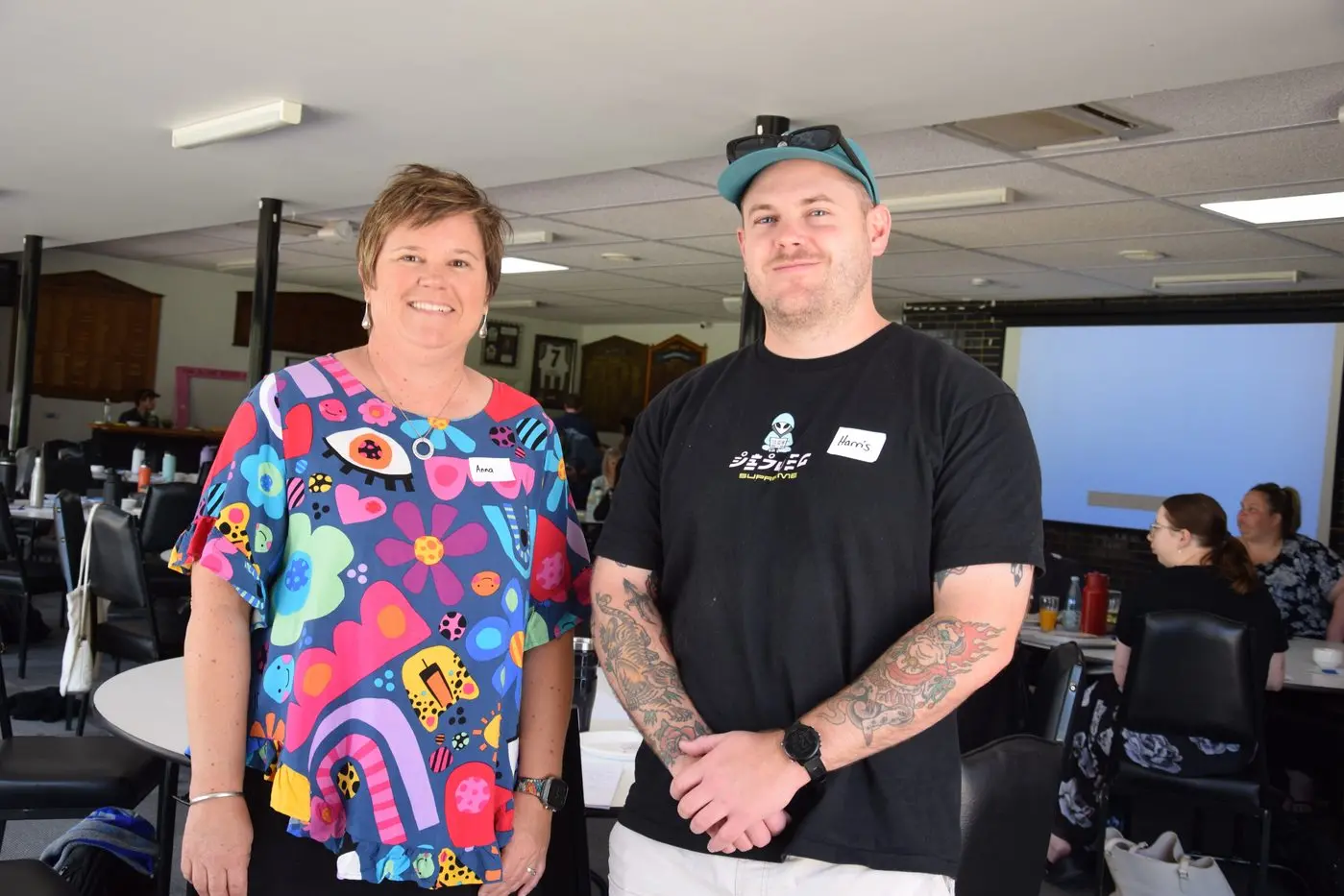PHOTO
GIVING the kids a day off last Thursday was a worthy investment for Euroa Secondary College.
Principal Anna Eddy ensured that all teachers and non-teaching staff were available to take advantage of Dr Carr-Gregg’s visit.
“It’s not often that you have such an expert in the field here in little old Euroa,” Ms Eddy said.
“We had a student-free day so that all of our staff could go to reinforce that we have a consistent approach to student support, that everyone is on the same page.”
Ms Eddy said the day's experience added to the college’s student wellbeing practices.
“It is something we do already, knowing it is important to build connections and relationships with the students’ parents and caregivers at home so we can work alongside them at home to help build kids’ resilience and wellbeing.”
The college’s wellbeing leader Harris Dickason joined the school community in mid-2024 and brought his extensive experience to work closely with students.
Mr Dickason said he was ‘wrapped’ that the teaching staff got an insight of what goes on with students with their social media input and social changes.
He said the opportunity for staff to hear Dr Carr-Gregg would make those who don’t work in the wellbeing space more aware of the signs to look out for.
“It was good to create awareness, particularly with what can go on behind the scenes in the kids’ lives,” Mr Dickason said.
“Unless you are tracking in that area, unless you work directly with kids and dive straight into recognizing things, staff in any profession may not have any idea that those things go on.”
Ms Eddy said the response from colleagues had been very positive.
“To Harris and me it was nothing new, but for other staff it was new material, in terms of how trauma can really impact on adolescents on a day-to-day basis,” she said.
“The one-on-one student-teacher mentoring program we do really has its benefits, and there are now ways we can embed the trauma informed practices into our classrooms. “That then helps our teachers create a safe and predictable environment for our students.”
Dr Carr-Gregg introduced the gathering to ‘islands of competence’, a concept that focuses on a person's positive areas of ability, where they can challenge themselves and so develop resilience when faced with outside problems.
“The idea is to find something that interests them and gives them positive recognition from their peers,” Dr Carr-Gregg said.
“Whether it be music, art, sport, drama, what is their ‘spark’?”
Ms Eddy saw islands of competence as being an opportunity for connecting non-academic activity with social development.
“We want our students to have a sense of belonging at this school, but they need also to have that sense of belonging at home and in their community."





